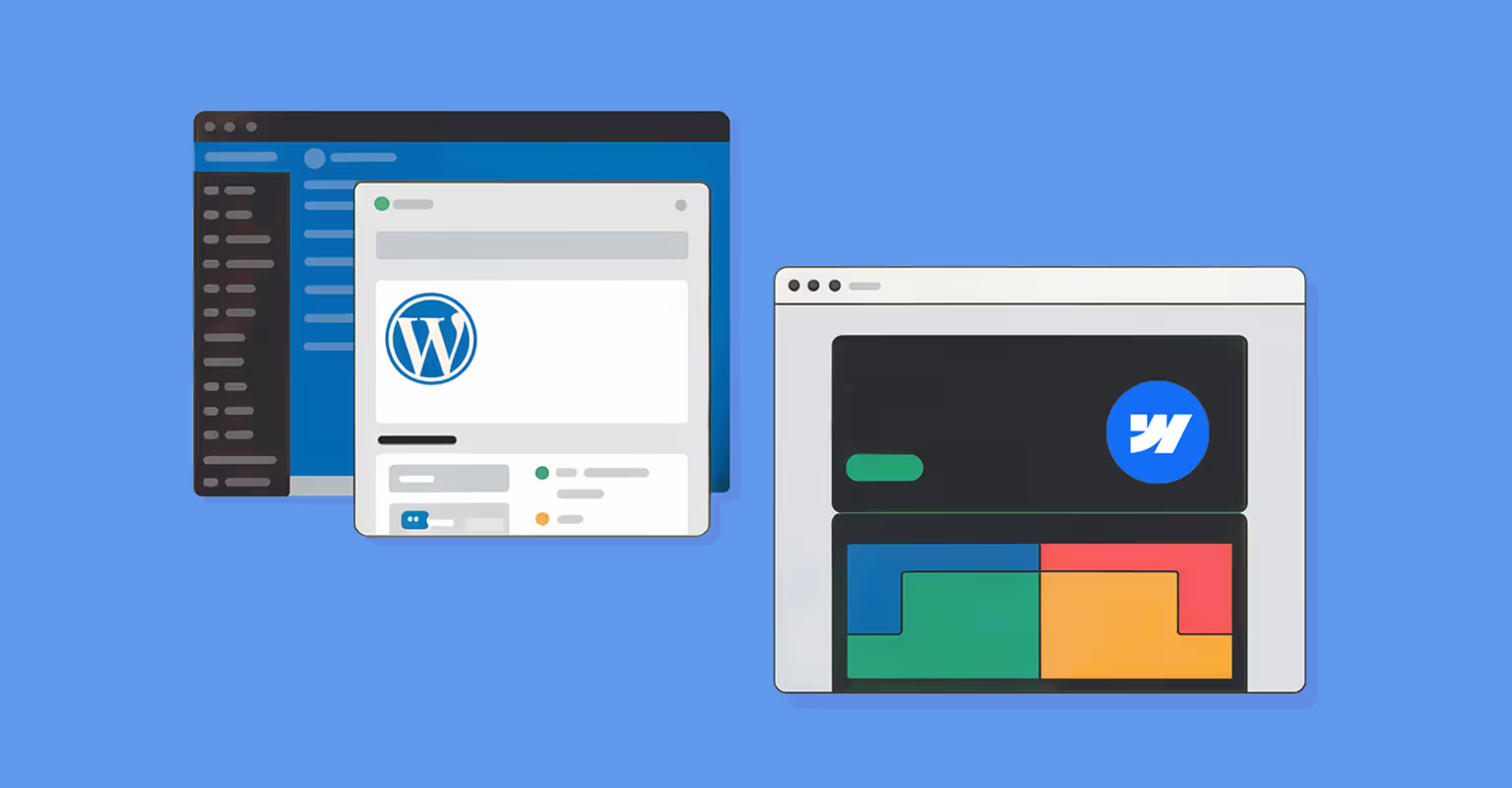Webflow or WordPress? Depends Who You’re Asking (Or What You’re Building)
Let’s skip the fanboy arguments and get straight to it: Webflow and WordPress are both great tools. Each has its strengths. Each has its place. And at Nephew, we don’t pick favorites, we pick what works. This isn’t about platform loyalty. It’s about building the right solution for the right client. So here’s how we think about it.

Quick Comparison: Webflow vs. WordPress

WordPress: The Workhorse That Still Delivers
WordPress powers over 40% of the web for a reason. It’s endlessly customizable, supported by a massive ecosystem, and great for content-rich sites. If you need a blog, a knowledge base, or deep plugin integrations (like complex forms, booking systems, or multilingual setups), WordPress might be your move.
Why We Use It:
- Proven scalability for growing businesses
- Thousands of plugins for almost any need
- Strong SEO foundation
- Open source and widely supported
When It Makes Sense:
- You need a robust CMS with editorial controls
- You have a lot of third-party tools to plug in
- You want to manage content at scale
- Budget is tight but flexibility is key
That said, WordPress can get bloated fast if you’re not careful. Cheap themes and too many plugins can slow your site down or create security gaps. It requires ongoing maintenance. But if built cleanly (and managed well), it’s rock solid.
Webflow: The Designer’s Playground with Power Under the Hood
Webflow is sleek, modern, and built with today’s design-first mindset. You get pixel-perfect control, fast load times, and a visual interface that actually makes sense. It’s not just pretty, it’s powerful.
Why We Use It:
- Full visual control, no code needed (but devs can still go deep)
- Lightning-fast hosting and performance
- Built-in CMS that feels intuitive
- Smooth animations, responsive design baked in
When It Makes Sense:
- You want a modern, beautiful site with polish
- You don’t want to worry about plugins or hosting
- You care about performance and SEO from day one
- You want easy editing without breaking layouts
Webflow is especially great for small-to-midsize businesses who want to look like a million bucks without hiring a dev team every time they want to update a page.
So, Webflow or WordPress? Here’s Our Take:
We don’t push clients into one platform. We match the platform to your needs, goals, and future plans. If you’re a fast-growing business that wants design flexibility and low maintenance, Webflow’s probably the one. If you’re running a content-heavy operation or have a lot of tech needs under the hood, WordPress can handle it.
Nephew's Rule of Thumb:
Webflow if you want polish and speed. WordPress if you want flexibility and scale.
Let’s make your next move your smartest one.
From brand to clicks to conversions, we build marketing that actually works.

